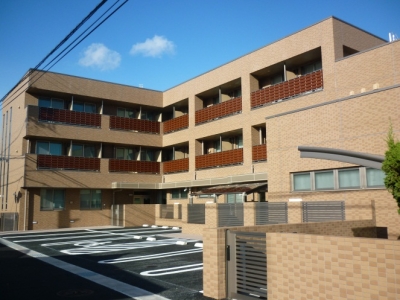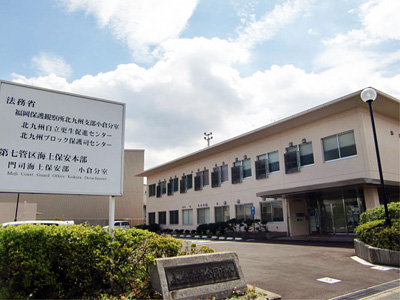What is the Rehabilitation of Offenders?
This is a system designed to give guidance and assistance to those who have committed crimes or those who have turned to juvenile delinquency so that they can become sound members of the society while spending normal social lives; the system is carried out in cooperation with the nation and the volunteers.
Regional Parole Boards
The regional parole boards are located in the eight regions across the country, with respect to each jurisdictional areas of the high courts. The major functions of the board are to make decisions on parole of inmates of prisons or juvenile training schools and revocation of parole when parolees fail to observe the parole conditions.
Probation Offices
There are 50 probation offices throughout the country, which are located in each jurisdictional areas of the district courts. Their major functions are to conduct probationary supervision over those juveniles placed under supervision by the decision of the family courts, those released on parole from prisons or juvenile training schools and also those who are on probation with suspension of sentence. The probation offices are also engaged in activities to promote community-based campaigns to prevent crime and delinquency.
Probation Officers
Probation officers are full-time government officials of the Ministry of Justice who are assigned to either the Secretariat of the Regional Parole Board or to the Probation Office. Having professional knowledge of psychology, pedagogy or sociology, they engage in the work of rehabilitating those who have committed crimes or have turned to juvenile delinquency, giving them guidance and assistance in everyday life, in collaboration with volunteer probation officers. They also take charge of the work relating to the prevention of crime and delinquency.
Volunteer Probation Officers
Volunteer probation officers are citizens commissioned by the Minister of Justice who cooperate with probation officers in providing various rehabilitation services to offenders and delinquent juveniles. About 50,000 citizens are serving as volunteer probation officers across the country.
As they are familiar with the environment and the situation of their community, they are able to give effective guidance and aid to those who have committed crimes and delinquent acts. Volunteer probation officers are also engaged in promoting crime prevention activities in their community.
Volunteer probation officers have the status of part-time government officers, but they do not receive salaries; only the necessary expenses for their activities are reimbursed.
Badge of Volunteer Probation Officers
The badge is designed by the late Sagenji Yoshida, Professor Emeritus at the Tokyo University of the Arts. It consists of 18 chrysanthemum petals with a sunflower and the rising sun; the circle of its contour represents harmony among people and the red cloth represents the hearts and passion of people.

Badge of Volunteer Probation Officers
Offenders Rehabilitation Facilities
Of all the persons who have been placed under parole/probationary supervision or released from prison, offenders rehabilitation facilities accommodate those who have no proper place to live, give them living guidance and vocational training so that they are able to live independently at the earliest possible date. There are 103 such facilities in the country, mainly operated by juridical persons for the offenders’ rehabilitation services, which are private foundations approved by the Minister of Justice to run the services in order to facilitate the rehabilitation of offenders.

Exterior of an Offenders Rehabilitation Facility
Women’s Association for Rehabilitation Aid
The Women’s Association for Rehabilitation Aid is an organization composed of volunteers who cooperate in community activities from the viewpoint of women for crime prevention and also for the rehabilitation of those who have committed crimes and delinquent acts, with a view to establish a brighter society free from crime and delinquency.
There are about 170,000 volunteer members across the country. They are involved in the following activities: enhancing public awareness towards crime prevention; providing rehabilitation support in offenders rehabilitation facilities; cooperation for social participation activities of juveniles on probation; and visiting prisons and juvenile training schools to encourage inmates’ rehabilitation; and assisting parents in raising their children.
BBS Association
BBS stands for the “Big Brothers and Sisters Movement” organized by young volunteers who make friends with and give assistance to delinquent juveniles and pre-delinquent juveniles to help them attain sound growth, as “friends”. These young volunteers, just as close being like their older brothers or sisters, keep in touch with the juveniles in various situations (called the “Tomodachi(Friend)-Project”) and help them solve their problems and to become self-reliant. In addition, BBS members carry out activities for crime prevention striving for the realization of a crime-free society. About 4,500 members are engaged in the activities.
Cooperative Employers
“Cooperative Employers” are those who willingly offer employment to offenders despite their past records and cooperate in the offenders’ rehabilitation. These employers provide stable jobs with full understanding of the feelings of offenders which leads to a tremendous contribution. There are about 14,000 such employers across the country who cooperate in this field.
Why Not Join Offenders Rehabilitation Volunteers?
To ensure offenders to rehabilitate themselves as law-abiding members of society, it is important that the government collaborate with offenders rehabilitation volunteers, including the Women’s Association for Rehabilitation Aid, BBS (Big Brothers and Sisters Movement) Association, and Cooperative Employers. We hope that you also join offenders rehabilitation volunteers.
National Center for Offenders Rehabilitation
The National Center for Offenders Rehabilitation is established and operated to provide parolees from the penal institution or the juvenile training school, etc. who cannot be coordinated necessary social surroundings for their smoother reintegration by their relatives or private-sector offenders rehabilitation facilities, with lodging at state-established facilities where probation officers directly provide them with intensive supervision and generous employment assistance, thereby encourage their rehabilitation and prevent them from committing further offense.
Among these facilities, the organization that performs selective, specialized treatment in society in accord with the relevant specific problem is called the “National Center for Offenders Rehabilitation,” while another organization that provides vocational training primarily in agriculture is called the ”National Center for Offenders Job Training and Employment Support”.
The “National Center for Offenders Rehabilitation” is established and operated in Kitakyushu and Fukushima City, while the “National Center for Offenders Job Training” is established and operated in Hokkaido (Numata-cho) and Ibaraki (Hitachinaka City), respectively.

The National Center for Offenders Rehabilitation in Fukuoka (Kitakyushu City)
Measures for Crime Victims as Part of Offenders Rehabilitation
The following four measures are being taken: “Hearing of Victims’ Opinions in Parole Examinations” to hear opinions of crime victims as to the parole of offenders; “Communication of Victims’ Sentiments to Probationers ” to communicate crime victims ’ sentiments to offenders on probation; “Victim Notification System” to notify crime victims of the treatment status of the offenders; and “Counselling and Support” to give crime victims advice and support.
In taking these measures, dedicated officers (officers taking care of crime victims and volunteer probation officers taking care of crime victims) are assigned to each probation office.
Implementation of Treatment for Persons Who Have Caused Serious Incidents on the Grounds of Insanity or Diminished Capacity
The medical care and treatment system for those who are mentally unsound is adopted in accordance with the Act on Medical Care and Treatment for Persons Who Have Caused Serious Incidents on the Grounds of Insanity or Diminished Capacity, which was enforced in July 2005. This is a kind of treatment system to facilitate the rehabilitation of those who have caused serious incidents, such as murder or arson, on the grounds of insanity, etc.According to the system, persons who have received a decision on hospitalization at a regional court must enter a mental hospital designated by the Minister of Health, Labour and Welfare (designated public mental hospital) and undergo special medical care. During hospitalization, probation offices adjust inpatients' living conditions which they will go into after discharge. Persons who have received a decision on outpatient treatment or a discharge decision from the mental hospital at the regional court must attend a mental hospital designated by the Minister of Health, Labour and Welfare (designated public mental hospital) generally for three years, during which time they are under mental health supervision by the probation offices. The rehabilitation coordinators, who are qualified as psychiatric social worker, public health nurse, etc., and those who have necessary knowledge and experience for the rehabilitation of those patients, are professional staff members at the probation offices. They are engaged in not only outpatient treatment but also in coordination of community-based treatment for outpatients among related agencies.
